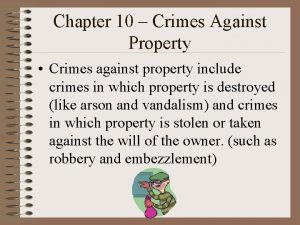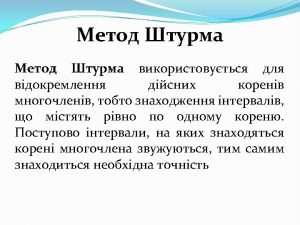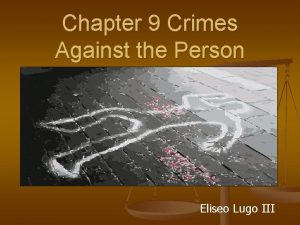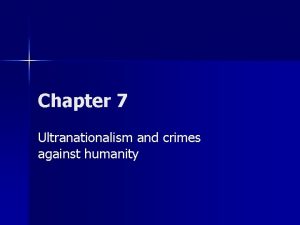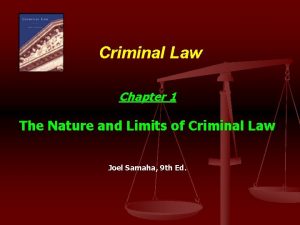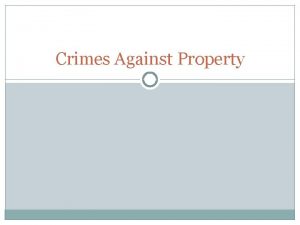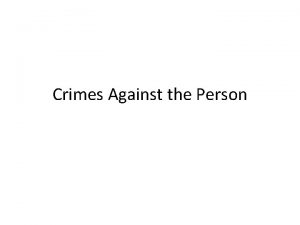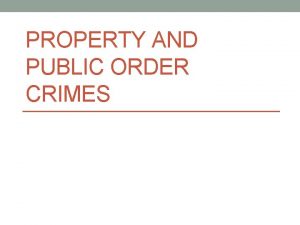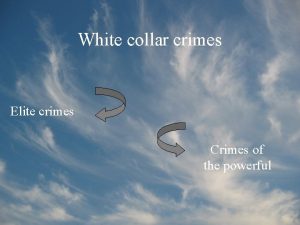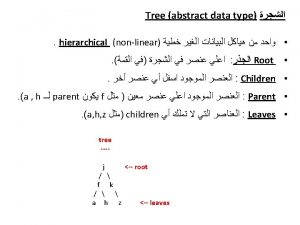Crimes Against Property Crimes against property include Crimes







- Slides: 7

Crimes Against Property

Crimes against property include: �Crimes in which property is destroyed. (Arson, Vandalism) �Crimes in which property is stolen or taken against the will of the owner (burglary, larceny, embezzlement)

Arson – The will malicious burning of another person’s property. In most states, it is illegal to burn any structure. �It is illegal to burn any property with the intent to defraud an insurance company. (This is a separate crime. ) �Some fires are racially motivated. To counteract racial violence (arson) especially churches, Congress passed the Church Arson Prevention Act 1996.

�Computer Crime – broadly defined as any violation of criminal law that involves computer technology. �Traditional – creating fake IDs using computers; fraudulent credit card purchases using the internet �New – Viruses, using programs to steal passwords to gain free access to computer services �Hackers – youthful offenders who gain illegal access to government or corporate computer systems. Many believe they are dangerous. Others believe they are relatively harmless and do not seek money. �Crackers – hackers who have the criminal motive to make money from hacking.

�Computer Fraud Act 1986 – Provided the government with specific law to prosecute hackers. Made it a crime to modify, destroy, or disclose information gained from unauthorized entry into a computer. �National Information Infrastructure Act of 1996 – makes it illegal to threaten to cause damage to a computer system unless the owner gives you something of value (crashing a computer unless given something). The other part of the act makes it illegal to give or receive passwords that would permit unauthorized access to the system.

�Internet crimes �Communications Decency Act of 1996 – sought to make it a criminal offence to transmit any indecent material to minors without effective methods of ensuring that anyone under 18 could not access the material (struck down by the Supreme Court in Reno v. ACLU as a violation of the first amendment). �Illegal Copying Software – Software companies lose $2 million a year to illegal copying. Violators are subject to a possible jail term and a fine up to $250, 000. Violators can include individuals, businesses, and schools.

Larceny, Robbery, Burglary � Larceny – the unlawful taking and carrying away of the property of another person � When the property taken is of value exceeding Five Hundred Dollars ($500. 00). � When such property, although not of value exceeding Five Hundred Dollars ($500. 00), is taken from the person of another. � Larceny in all other cases is petit larceny. � Robbery – the unlawful taking from a person’s immediate possession by force or intimidation � Burglary – the unauthorized entry into any structure with the intent to commit a crime
